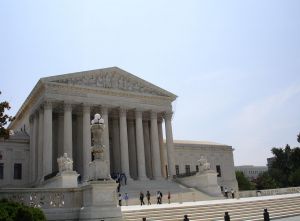 This past Tuesday, the Supreme Judicial Court issued a decision in Commonwealth v. Watts. The decision held that the Raise the Age legislation, which raised the age of defendants who could be charged in adult court from seventeen to eighteen, is not retroactive, and therefore does not apply to cases that were pending at the time the law was enacted on September 18, 2013.
This past Tuesday, the Supreme Judicial Court issued a decision in Commonwealth v. Watts. The decision held that the Raise the Age legislation, which raised the age of defendants who could be charged in adult court from seventeen to eighteen, is not retroactive, and therefore does not apply to cases that were pending at the time the law was enacted on September 18, 2013.
The Watts decision addressed two cases involving seventeen year old defendants that were charged prior to the enactment of the Raise the Age legislation, but whose cases were pending at the time the law was passed. After the passage of the law, both of the defendants moved to dismiss the charges against them on the ground that the District Court no longer had jurisdiction over them because they were seventeen years of age at the time the alleged offenses occurred and when the criminal proceedings began. The respective trial court judges denied the motions and both of the defendants filed for further appellate review.
In making its decision, the SJC noted that, under G. L. c. 4, § 6 and other applicable case law, a newly enacted statute is presumptively prospective – meaning that it only applies to charges brought after the enactment of the statute. There are only two exceptions to this rule – where solely prospective application would: (1) be inconsistent with the “manifest intent” of the legislature; or (2) be “repugnant to the context of the same statute.”
As to the first exception, the presumption of prospective application is inconsistent with the manifest intent of the legislature if the legislature includes a clearly expressed intent for the statute to apply retroactively. The SJC found, however, that there was no such clearly expressed intent in the Raise the Age legislation. The Court pointed to the language of the legislation, which states both that “no criminal proceeding shall be begun against any person who prior to his eighteenth birthday commits an offense against the laws of the commonwealth . . . without first proceeding against him as a delinquent child,” and that the legislation “shall take effect upon its passage” (September 18, 2013).
The Court stated that, when the provisions were read together, the act provides that on and after the act’s passage on September 18, 2013, criminal proceedings may not be begun in the Superior Court or in the District Court against juveniles who were seventeen years of age at the time of the alleged offense. Therefore, the act only protects juveniles who are seventeen years of age and who are charged with committing a crime on or after September 18, 2013, and juveniles who were seventeen years of age at the time of an alleged offense committed before September 18, 2013, but who had not been charged until on or after September 18, 2013.
The Court found that there was no language in the Raise the Age legislation that indicated that it should be applied retroactively to cases involving juveniles who were seventeen years of age at the time of the alleged offense and whose criminal cases in the Superior or District Court were pending on September 18, 2013. Continue reading →
 The United States Supreme Court recently issued a new decision, Montgomery v. Louisiana, addressing the retroactivity of its decision in Miller v. Alabama. The Miller decision held that “a juvenile convicted of a homicide offense could not be sentenced to life in prison without parole absent consideration of the juvenile’s special circumstances.” The Court’s decision in Montgomery holds that the Miller decision “is retroactive to juvenile offenders whose convictions and sentences were final when Miller was decided.”
The United States Supreme Court recently issued a new decision, Montgomery v. Louisiana, addressing the retroactivity of its decision in Miller v. Alabama. The Miller decision held that “a juvenile convicted of a homicide offense could not be sentenced to life in prison without parole absent consideration of the juvenile’s special circumstances.” The Court’s decision in Montgomery holds that the Miller decision “is retroactive to juvenile offenders whose convictions and sentences were final when Miller was decided.” Massachusetts Criminal Lawyer Blog
Massachusetts Criminal Lawyer Blog







 On December 24, 2013, in Commonwealth v. Diatchenko, the Supreme Judicial Court ruled that all life-without-parole sentences for
On December 24, 2013, in Commonwealth v. Diatchenko, the Supreme Judicial Court ruled that all life-without-parole sentences for  On December 24, 2013, in
On December 24, 2013, in  For a criminal charge to issue against an individual, a police officer must submit an application to the court for a criminal complaint. The application includes the alleged facts and the charges sought. A clerk magistrate then reviews the application to determine whether there is a sufficient basis for the complaint to issue. The specific legal standard is whether the information presented to the clerk magistrate establishes probable cause to believe that the individual committed a particular crime. If the clerk magistrate finds that there is probable cause, the complaint issues and the individual charged is brought to court and is arraigned on the charges.
For a criminal charge to issue against an individual, a police officer must submit an application to the court for a criminal complaint. The application includes the alleged facts and the charges sought. A clerk magistrate then reviews the application to determine whether there is a sufficient basis for the complaint to issue. The specific legal standard is whether the information presented to the clerk magistrate establishes probable cause to believe that the individual committed a particular crime. If the clerk magistrate finds that there is probable cause, the complaint issues and the individual charged is brought to court and is arraigned on the charges. Two students at Framingham High School showed up at the nurse’s office on Monday, October 7th. They were not there, however, for the typical stomachache or sore throat – these students had apparently eaten pot brownies and become ill as a result. According to an article in the
Two students at Framingham High School showed up at the nurse’s office on Monday, October 7th. They were not there, however, for the typical stomachache or sore throat – these students had apparently eaten pot brownies and become ill as a result. According to an article in the